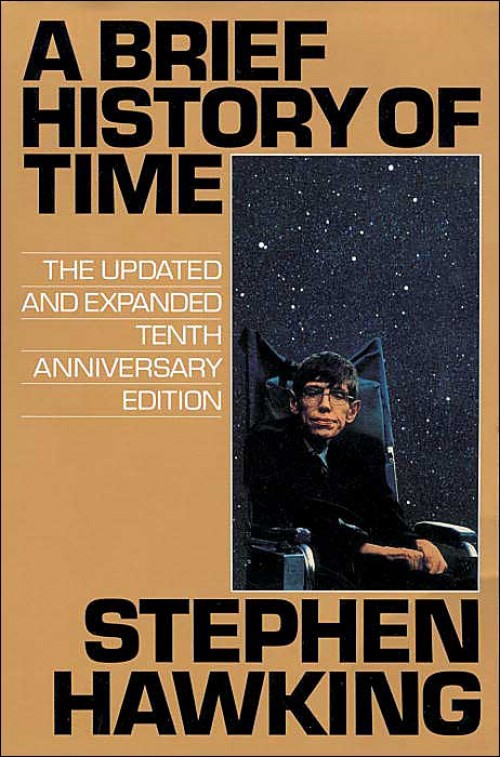If you’re a couch geek, like me and most of the geek universe, these 10 books that cover life, evolution, neuroscience, biology, psychology and cosmology (I know I’m missing something) are a must read and might even change the way you view and comprehend the world around you.
A Brief History of Time (Stephen Hawking)
A science book that has sold over 10 million copies to date, which is pretty much an attempt to explain cosmology to the masses, and succeeding by using only one formula every kid on the planet knows, E= MC². It also asks and tries to answers some bigger questions about how the universe began and where is it going.
A Primate’s Memoir (Robert Sapolsky)
Written by Sapolsky, an American biologist who spent years in Kenya studying Baboons, using his observations to describe human behavior and the very different culture in Africa, portraying an unconventional way of studying neurophysiology to determine the effects of stress on life expectancy.
Chaos: Making of a new Science (James Gleick)
James Gleick popularized the Chaos theory and introduced it to the public by being pretty much the first to introduce the principles and early development of chaos theory to the masses, and maybe changing the way some people viewed the universe they live in.
Cosmos (Carl Sagan)
The first real best-selling science book which was made into a popular TV series, with its 13 episodes corresponding to the book’s 13 chapters, as Sagan explored 5 billion years of cosmic evolution and the development of science and civilization using a lot of illustrations to make it a bit more accessible.
Gödel, Escher, Bach (Douglas Hofstadter)
A book that tries to describe how all mental activity transcends the system that supports it, leading to the realization that computers, eventually, can attain human intelligence, comparing it to the emergence of consciousness out of firing neurons in our mind.
The Black Swan: The Impact of the Highly Improbable (Nassim Nicholas Taleb)
Experts? Don’t believe everything they say. The incredible, rare and improbable? They happen more than you think, and effect you, everyone and everything in a much more meaningful way than you usually care to assume, looking for simplistic explanations to these events in retrospect.
The Selfish Gene (Richard Dawkins)
A book on evolution, focusing on the gene aspect of evolution instead of the views focusing on the organism and the group, in that way explaining that two people related genetically will usually find more sense (at the genes level) to act selflessly with one another, moving on from there.
Thinking, Fast and Slow (Daniel Kahneman)
The central thesis of the book is a dichotomy between two modes of thought – Fast, instinctive and emotional; the other slower, deliberative, logical. The book’s bottom line, in my opinion, is that we place too much confidence in human judgment.
What Do You Care What Other People Think?: Further Adventures of a Curious Character (Richard Feynman)
The last of Feynman’s autobiographical works, who passed away 24 years ago. Nearly half of it deals with his involvement on the Rogers Commission investigating the Space Shuttle Challenger disaster, also describing an experiment in which he showed how the O-rings in the shuttle’s rocket boosters could have failed due to cold temperatures on the morning of the launch, later determined to be the primary cause of the shuttle’s destruction. The rest of the book is letters, short stories and photographs.
Wider than the Sky: The Phenomenal Gift of Consciousness (Gerald Edelman)
The title of the book, wider than the sky, is drawn from a Emily Dickinson poem, describing the brain as wider than the Sky, deeper than the sea, and just the weight of God, and tries to explain, in part, how firing neurons can give rise to subjective sensations, thoughts, and emotions.












